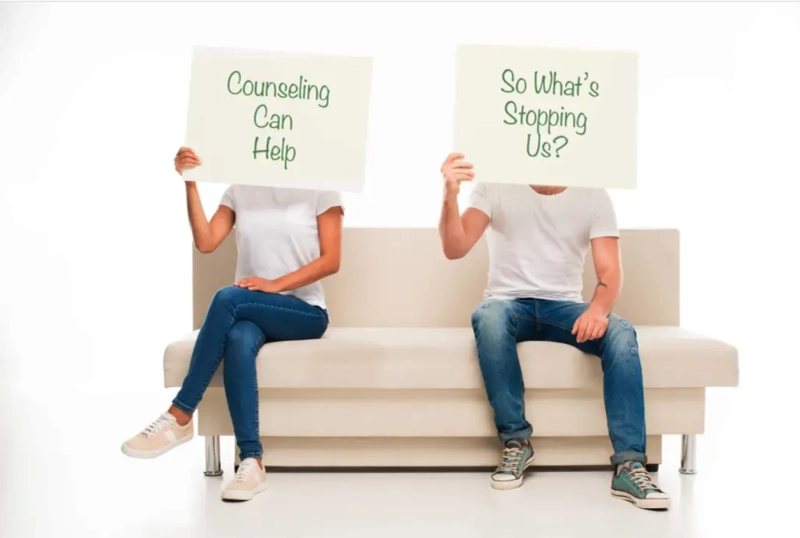Relationships are a fundamental part of our lives, offering support, companionship, and love. However, even the strongest relationships can face challenges and conflicts. When issues arise, relationship counseling can be an invaluable resource to help couples navigate their difficulties and strengthen their bond. This article provides a comprehensive guide to relationship counseling, covering its benefits, how it works, and tips for finding the right counselor.
Understanding Relationship Counseling
Relationship counseling, also known as couples therapy or marriage counseling, is a type of psychotherapy that helps couples improve their relationship. It involves working with a trained therapist to address and resolve issues, enhance communication, and foster a deeper understanding between partners.
Benefits of Relationship Counseling
1. Improved Communication
One of the primary benefits of relationship counseling is improved communication. Many relationship issues stem from misunderstandings and poor communication. Counseling helps couples develop effective communication skills, enabling them to express their thoughts and feelings openly and constructively.
2. Conflict Resolution
Relationship counseling provides couples with tools and strategies to resolve conflicts in a healthy and productive manner. Therapists help couples identify the root causes of their conflicts and guide them in finding mutually acceptable solutions.
3. Strengthened Emotional Connection
Counseling can help couples reconnect emotionally by addressing underlying issues and fostering empathy and understanding. This strengthened emotional connection can lead to a more fulfilling and satisfying relationship.
4. Enhanced Intimacy
Through counseling, couples can explore and address issues related to intimacy, whether they are physical, emotional, or psychological. This can lead to a deeper and more satisfying intimate relationship.
5. Increased Relationship Satisfaction
By addressing and resolving issues, relationship counseling can lead to increased overall satisfaction in the relationship. Couples who engage in counseling often report feeling more connected, supported, and understood by their partners.
How Relationship Counseling Works
1. Initial Assessment
The counseling process typically begins with an initial assessment. During this session, the therapist will gather information about the couple’s history, the issues they are facing, and their goals for counseling. This helps the therapist develop a tailored approach to address the couple’s unique needs.
2. Identifying Issues
Through discussions and exercises, the therapist helps the couple identify specific issues and patterns that are contributing to their difficulties. This can include communication problems, trust issues, financial disagreements, or other areas of conflict.
3. Developing Goals
Based on the assessment, the therapist and couple work together to develop specific, achievable goals for therapy. These goals provide a roadmap for the counseling process and help measure progress.
4. Skill Building
A key component of relationship counseling is skill building. The therapist teaches the couple practical skills to improve communication, manage conflicts, and enhance their emotional connection. These skills are practiced both in and out of therapy sessions.
5. Ongoing Support and Feedback
Throughout the counseling process, the therapist provides ongoing support and feedback. This helps the couple stay on track, address new issues as they arise, and continue to make progress towards their goals.
6. Maintenance and Relapse Prevention
As the couple makes progress, the therapist helps them develop strategies for maintaining their improvements and preventing relapse. This can include regular check-ins, continued practice of new skills, and identifying potential triggers for future conflicts.
Choosing the Right Relationship Counselor
1. Credentials and Experience
When choosing a relationship counselor, it’s important to consider their credentials and experience. Look for a licensed therapist with specialized training and experience in couples therapy.
2. Approach and Style
Different therapists use different approaches and styles in their practice. Some may use cognitive-behavioral techniques, while others may focus on emotion-focused therapy or other modalities. It’s important to find a therapist whose approach resonates with both partners.
3. Compatibility
The therapeutic relationship is crucial for the success of counseling. It’s important to find a therapist with whom both partners feel comfortable and understood. An initial consultation can help determine if the therapist is a good fit.
4. Reviews and Recommendations
Reading reviews and seeking recommendations from trusted sources can provide valuable insight into a therapist’s effectiveness and style. Personal referrals or positive testimonials can help in making an informed decision.
5. Practical Considerations
Consider practical factors such as location, availability, and cost when choosing a relationship counselor. Online counseling can also be an option for those who prefer the convenience of virtual sessions.
Conclusion
Relationship counseling can be a powerful tool for improving and strengthening relationships. By addressing communication issues, resolving conflicts, and fostering a deeper emotional connection, couples can build a more satisfying and fulfilling relationship. If you and your partner are facing challenges, consider seeking the help of a qualified relationship counselor. With the right support and guidance, you can navigate your difficulties and create a stronger, healthier bond.



